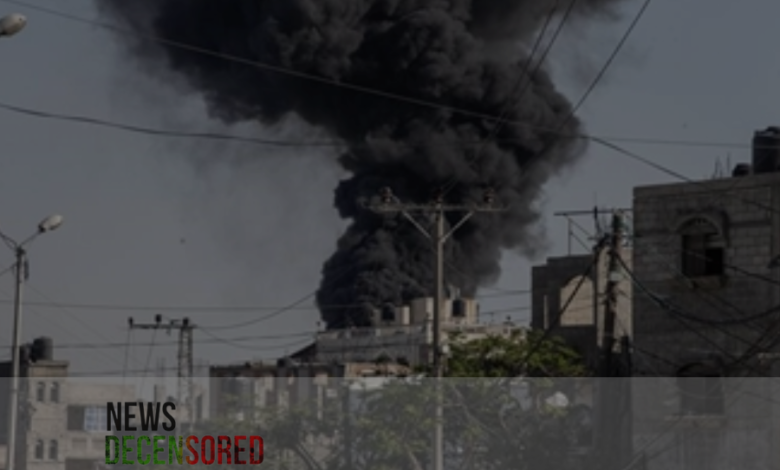US, Germany lead West in arming Israel war on Gaza

There is tremendous pressure on the Israeli government from international media—to sign an agreement with the Palestinian resistance in the light of continued military aid from Western countries, particularly the USA and Germany. However, it worsens the situation of the Palestinians.
According to the Wall Street Journal, The analysts emphasize that the deal gets cut about the prisoners as the Israeli security establishment begins prodding the government. For a new way of thinking on the battlefield calculations on the fact that the gains from a continuance of hostilities in Gaza are minimal at best and, at worst, might be harmful since the establishment is starting to wake up on the matter that the standing of typical gain of the continued conflict results in a menace of a further instability with no gain in handy.
Israel Today said the security establishment was caught by surprise following the reaction of Hamas, the Islamic Resistance Movement, over the recent prisoner exchange deal negotiations. More so, the security establishment would instead clinch a deal with the Palestinian resistance now than be forced into escalation.
The newspaper also reported that Israeli Prime Minister Benjamin Netanyahu still has not given his official green light for the Norton option of imposing a military government in Gaza. Writing for the Jerusalem Post, Jacob Nagel observed that with mounting military pressure, consequences are looming over Israel and a far-reaching deal with Hamas. He elaborated on three of the key challenges:
- The transition from high-readiness to low-readiness military operations in Gaza
- Promotion of a hostage deal
- Changes in the strategic direction of efforts already northward toward Iran
This strategic shift—Israel’s rise in regional security—thus brings it to immediate tactical decisions to gratify its long-term strategic purposes. In another similar report, the Middle East Monitor reported that the United States and Germany top the cut of Western countries providing supplies to Israel over the recent conflict in Gaza. With growing international outcry to halt arms sales, Germany has twisted arms with America, Italy, and Britain to be the supplying countries of military supplies that fuel these atrocities in Gaza.
The site claims that it doesn’t give a damn even though they genuinely risk charges of abetting war crimes or genocide. The international community outcry leaves countries that classically face such dilemmas at the center of moral and ethical decisions about their foreign policy and defense commitments.
The same parliamentary elections were reported in the Financial Times, where the Labour Party won the elections but lost seats over its position in Gaza. Few independent MPs entered Parliament on this account, sympathizing with the Palestinian cause, especially in constituencies with large Muslim populations. This demonstrates that foreign policy issues seem more important in light of the increasing attention to international conflicts and are, thereby, reasons for public opinion to stand against certain political stances.
The Gaza conflict and the global reaction are testimony to the built-in balance that speaks of military strategy, political diplomacy, and humanitarian concerns in the Israeli-Palestinian conflict. The domestic pressure put on the Israeli government to agree on a prisoner swap, which led to the release of prison inmates at the cost of one Israeli citizen, Gilad Shalit, versus the controversial backing of Western powers, mainly the United States and Germany, actually sets out the multi-layered nature of this protracted conflict. Further escalation is possible, but so is resolution by diplomatic means as stakeholders find their way through this delicate situation.




